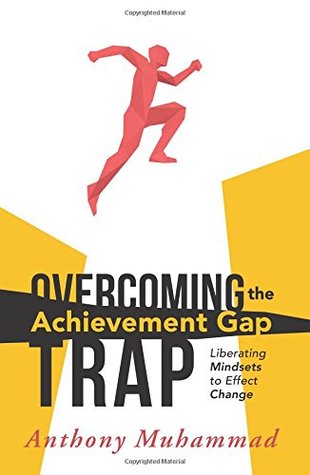Advanced Academics: Examining Our Mindset
"Without examining our theories and thinking, focusing on policy and resource issues will do little to change the reality of learning inequality."
This is indeed a profound statement of Anthony Muhammad in the preface of his book Overcoming the Achievement Gap Trap: Liberating Mindsets to Effective Change. And I find advanced academic programs as one of the best areas in basic education where Muhammad's words must be heard and seriously considered. It is a fact that minorities and low-income children continue to be underrepresented in these programs, yet we persist in finding ways to alleviate the problem without addressing the heart of the matter: Our continued belief that there are always children who are exceptionally superior in intelligence compared to their peers in a classroom. With this mindset, we then device screening schemes through which we can identify these children early on. And when we find our selection is biased towards socioeconomic status or race, we resort to finding "better identification practices". Still, underrepresentation of poor, Black and Hispanic children in advanced academic programs linger.
Early this year, a team of researchers at Purdue University performed a meta-analysis of screening processes for gifted and talented students. Specifically, the study focused on nonverbal and nontraditional methods. As an example, one of the tests examined in this research, the Naglieri Nonverbal Abilities Test, was found to have a risk ratio of 0.23 for black students. This means gifted black students are 77% less likely to be identified than while or Asian students. This is actually not any better than IQ or other verbal tests where the risk ratio is 0.21. Another nonverbal method, Raven Standard Progressive Matrices, performed similarly. With these findings, the authors could only suggest that better screening methods should be pursued.
It is unfortunate that we do have the mindset, as manifested in the research article, that it is the policy that requires tinkering. The authors from Purdue likewise demonstrate this misguided notion in their introduction, "The lack of proportional representation of traditionally underrepresented groups in gifted programs within schools is likely the result of the identification methods that fail to accurately detect all students with high potential, especially students from diverse backgrounds coupled with inequities in opportunity."
Muhammad is right. It is our thinking that needs to change. As Brian Butler puts it in plain English:
Just to reiterate friends “a smart gene doesn’t exist”. People become smarter for many different reasons, but some have a five year headstart before they even get to school. It’s the parental factor before they get to school that determines the advantage! If we are one of those parents who can give those opportunities to our kids, that’s great and we should, but don’t mistake our positions to do so as an opportunity to label our kids “smarter” than a kid who has not had the same opportunities....No matter how hard we try, we will be selecting according to privilege. Instead, we must aspire to provide each and every student the opportunity to acquire those talents, those skills, those experiences, in our schools. The only reason these children do not have such talents is not because of their genes, but because of the schools who have simply labeled those who are privileged as "gifted" while those who are not as "not talented". Such labels are patently wrong.

Comments
Post a Comment